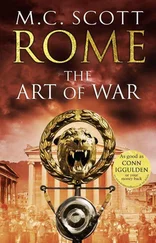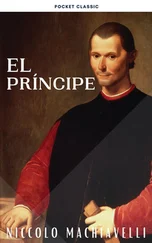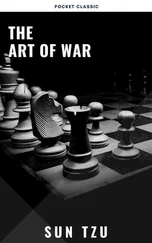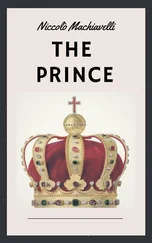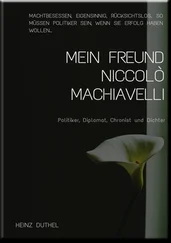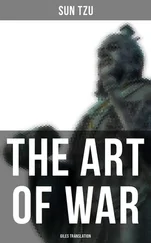Niccolò Machiavelli
The Art of War
Quality of Life, Freedom, More time with the ones you Love.
Visit our website: LYFREEDOM.COM
Many, Lorenzo, have held and still hold the opinion, that there is nothing which has less in common with another, and that is so dissimilar, as civilian life is from the military. Whence it is often observed, if anyone designs to avail himself of an enlistment in the army, that he soon changes, not only his clothes, but also his customs, his habits, his voice, and in the presence of any civilian custom, he goes to pieces; for I do not believe that any man can dress in civilian clothes who wants to be quick and ready for any violence; nor can that man have civilian customs and habits, who judges those customs to be effeminate and those habits not conducive to his actions; nor does it seem right to him to maintain his ordinary appearance and voice who, with his beard and cursing, wants to make other men afraid: which makes such an opinion in these times to be very true. But if they should consider the ancient institutions, they would not find matter more united, more in conformity, and which, of necessity, should be like to each other as much as these (civilian and military); for in all the arts that are established in a society for the sake of the common good of men, all those institutions created to (make people) live in fear of the laws and of God would be in vain, if their defense had not been provided for and which, if well arranged, will maintain not only these, but also those that are not well established. And so (on the contrary), good institutions without the help of the military are not much differently disordered than the habitation of a superb and regal palace, which, even though adorned with jewels and gold, if it is not roofed over will not have anything to protect it from the rain. And, if in any other institutions of a City and of a Republic every diligence is employed in keeping men loyal, peaceful, and full of the fear of God, it is doubled in the military; for in what man ought the country look for greater loyalty than in that man who has to promise to die for her? In whom ought there to be a greater love of peace, than in him who can only be injured by war? In whom ought there to be a greater fear of God than in him who, undergoing infinite dangers every day, has more need for His aid? If these necessities in forming the life of the soldier are well considered, they are found to be praised by those who gave the laws to the Commanders and by those who were put in charge of military training, and followed and imitated with all diligence by others.
But because military institutions have become completely corrupt and far removed from the ancient ways, these sinister opinions have arisen which make the military hated and intercourse with those who train them avoided. And I, judging, by what I have seen and read, that it is not impossible to restore its ancient ways and return some form of past virtue to it, have decided not to let this leisure time of mine pass without doing something, to write what I know of the art of war, to the satisfaction of those who are lovers of the ancient deeds. And although it requires courage to treat of those matters of which others have made a profession, nonetheless, I do not believe that it is a mistake to occupy a position with words, which may, with greater presumption, have been occupied with deeds; for the errors which I should make in writing can be corrected without injury to anyone, but those which are made with deeds cannot be found out except by the ruin of the Commanders.
You, Lorenzo, will therefore consider the quality of these efforts of mine, and will give in your judgement of them that censure or praise which will appear to you to be merited. I send you these, as much as to show myself grateful for all the benefits I have received from you, although I will not include in them the (review) of this work of mine, as well as also, because being accustomed to honor similar works of those who shine because of their nobility, wealth, genius, and liberality, I know you do not have many equals in wealth and nobility, few in ingenuity, and no one in liberality.
Part 1
As I believe that it is possible for one to praise, without concern, any man after he is dead since every reason and supervision for adulation is lacking, I am not apprehensive in praising our own Cosimo Ruccelai, whose name is never remembered by me without tears, as I have recognized in him those parts which can be desired in a good friend among friends and in a citizen of his country. For I do not know what pertained to him more than to spend himself willingly, not excepting that courage of his, for his friends, and I do not know of any enterprise that dismayed him when he knew it was for the good of his country. And I confess freely not to have met among so many men whom I have known and worked with, a man in whom there was a mind more fired with great and magnificent things. Nor does one grieve with the friends of another of his death, except for his having been born to die young unhonored within his own home, without having been able to benefit anyone with that mind of his, for one would know that no one could speak of him, except (to say) that a good friend had died. It does not remain for us, however, or for anyone else who, like us, knew him, to be able because of this to keep the faith (since deeds do not seem to) to his laudable qualities. It is true however, that fortune was not so unfriendly to him that it did not leave some brief memory of the dexterity of his genius, as was demonstrated by some of his writings and compositions of amorous verses, in which (as he was not in love) he (employed as an) exercise in order not to use his time uselessly in his juvenile years, in order that fortune might lead him to higher thoughts. Here, it can be clearly comprehended, that if his objective was exercise, how very happily he described his ideas, and how much he was honored in his poetry. Fortune, however, having deprived us of the use of so great a friend, it appears to me it is not possible to find any other better remedy than for us to seek to benefit from his memory, and recover from it any matter that was either keenly observed or wisely discussed. And as there is nothing of his more recent than the discussions which the Lord Fabrizio Colonna had with him in his gardens, where matters pertaining to war were discussed at length by that Lord, with (questions) keenly and prudently asked by Cosimo, it seemed proper to me having been present with other friends of ours, to recall him to memory, so that reading it, the friends of Cosimo who met there will renew in their minds the memory of his virtue, and another part grieving for not having been there, will learn in part of many things discussed wisely by a most sagacious man useful not only to the military way of life, but to the civilian as well. I will relate, therefore, how Fabrizio Colonna, when he returned from Lombardy where he had fought a long time gloriously for the Catholic King, decided to pass through Florence to rest several days in that City in order to visit His Excellency the Duke, and see again several gentlemen with whom he had been familiar in the past. Whence it appeared proper to Cosimo to invite him to a banquet in his gardens, not so much to show his generosity as to have reason to talk to him at length, and to learn and understand several things from him, according as one can hope to from such a man, for it appeared to him to give him an opportunity to spend a day discussing such matters as would satisfy his mind.
Fabrizio, therefore, came as planned, and was received by Cosimo together with several other loyal friends of his, among whom were Zanobi Buondelmonti, Battista Della Palla, and Luigi Alamanni, young men most ardent in the same studies and loved by him, whose good qualities, because they were also praised daily by himself, we will omit.
Читать дальше


